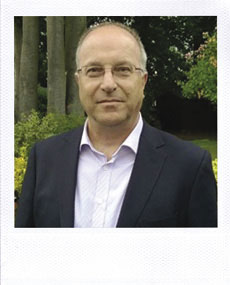 THE IWFM VOLUNTEER’S VIEW
THE IWFM VOLUNTEER’S VIEW
CATHY HAYWARD,
CHAIRMAN OF MAGENTA ASSOCIATES & CHAIR OF THE IWFM’S LONDON REGION
Like many of us, the pandemic caught the IWFM unawares. Despite that, within a few weeks the institute had set up its Turbulent Times webinar series which has proved enormously popular. The one I facilitated in May on the return to work had more than 600 attendees. Running since April, it has provided a much-needed source of independent advice for facilities professionals. The IWFM website is also packed full of information to support FMs.
Yes, the institute could have acted quicker in some areas. I was initially critical of the lack of pandemic-related advice on the website, for example. But in March and April we were all navigating unchartered waters. Few outside the scientific world could have predicted the impact of the pandemic then. The IWFM wisely took the decision to avail itself of Government support programmes, including the furlough scheme, which meant that it was operating with fewer people while at the same time adapting to home working. The webinar series was up and running remarkably quickly while other areas took longer.
At this year’s AGM, there was some challenging questions from members about the institute’s finances and its plans for chartered status. It’s a matter of public record that the IWFM was loss-making in 2018 and 2019 and its reserves are falling. With the conference and awards – significant revenue-generators – forced to be virtual this year, it’s likely to be loss making in 2020 as well. Membership of professional bodies has fallen in many areas as organisations cut spend and people affected by furlough or redundancy stop paying for their membership. Although the figures aren’t available, it’s likely that the IWFM is also affected by a fall in members.
But none of this should preclude the organisation from becoming a chartered body according to the requirements set out by the Privy Council. Facilities managers are members of a unique profession with only some overlap with other bodies, such as RICS, and a growing number are degree-qualified. While there are question marks over whether the institute could be described as ‘financially sound’, the same could be said of many organisations at the moment. Within a few years, if managed prudently, the IWFM could regain its financial footing.
What’s key is what the institute does next. After a period of adjustment, it has developed a good online offering. The key for it – and other similar organisations – is how to monetise that. It also needs to ensure it continues to be relevant at a time when people are looking to cut non-essential expenditure. Just as workplace professionals are adjusting to supporting people to work wherever they may be – a long-term trend significantly accelerated by the pandemic – the IWFM needs to adapt. It needs to react quicker and reduce red tape, but it also needs to better harness the power of its active members and volunteers – the institute’s critical friends – many of whom feel their knowledge, enthusiasm and ideas have been overlooked for some time. That way it will be seen as an essential weapon in the FM’s pandemic armoury and as relevant today as it was when it was formed – whether it’s successful in becoming a chartered body or not.
MEMBER’S VIEWS
 LUCY HIND,
LUCY HIND,
PROPERTY AND ESTATES PROFESSIONAL
The BIFM, now the IWFM has always been seen as the industry organisation to join when you enter the facilities management sector. It is known as the pioneering body for workplace and facilities management professionals for its training and guidance and at its peak has had over 15,000 members. I have been a member of the IWFM for many years and I have heard both good and poor feedback from individuals and organisations regarding the level of service; for instance, I myself have tried on a number of occasions to speak to the Institute regarding upgrading memberships and the system does not appear to be overly user-friendly. However, the training and guidance notes / documents on the website make a very handy reference for new FMs to help keep them up to date. As the facilities sector changes and moves in some new directions it occurs to me that the IWFM is promoting a wider range of data to its membership but I wonder if FMs actually know this and if they have visited the new website? Are they just renewing their membership annually by habit and not paying attention to the website and some of the data that is available?
I am however now acutely aware that there are discussions around which Bodies are most relevant to our field of work, to include technical elements in more detail and embrace an expanding FM role. Should it be the RICS? Where does CIBSE fit etc? I think that this is causing confusion and a lack of understanding and in some respect distrust. I believe that there is a lot on offer through the IWFM and I think that if there was more collaboration between the sector groups there would be less confusion. I have recently seen many job roles requesting RICS membership for FMs and currently very few requesting IWFM, which may force a change in the sector and a review of sector specific memberships that are most beneficial for career progression.
 STEPHEN BURSI,
STEPHEN BURSI,
FACILITIES LEAD, BAE SYSTEMS
Personally, I have had little engagement with IWFM (other than corporate membership), with my only portal into IWFM being via their journal and the odd on-line article regarding COVID back in the early days. Incidentally, on this point, for any guidance regarding managing FM related matters regarding COVID, we have sourced all guidance and information direct from Central Government. In early March, I had asked IWFM for some initial guidance to which I received quite a poor response.
 RUSSELL WOOD,
RUSSELL WOOD,
FM AT DENTSU AEGIS NETWORK
My membership lapsed in May this year. I don’t personally feel I am missing out on anything as I use LinkedIn to my advantage to connect, network, read/educate etc. I had found physical networking events useful and certain SIG’s interesting to follow and over the years I have been pointing these scenarios to my less senior team as I feel that they would benefit more so than I am these days. The challenges of FM during the current pandemic is making us all think on our feet and we are having to evolve, flex and adapt therefore currently those fortunate enough to be employed are probably learning significantly more on the ground than via any membership body. This isn’t to say I won’t renew my membership as the timing isn’t right for me personally, but as a rule and concept I am supportive of the IWFM.




